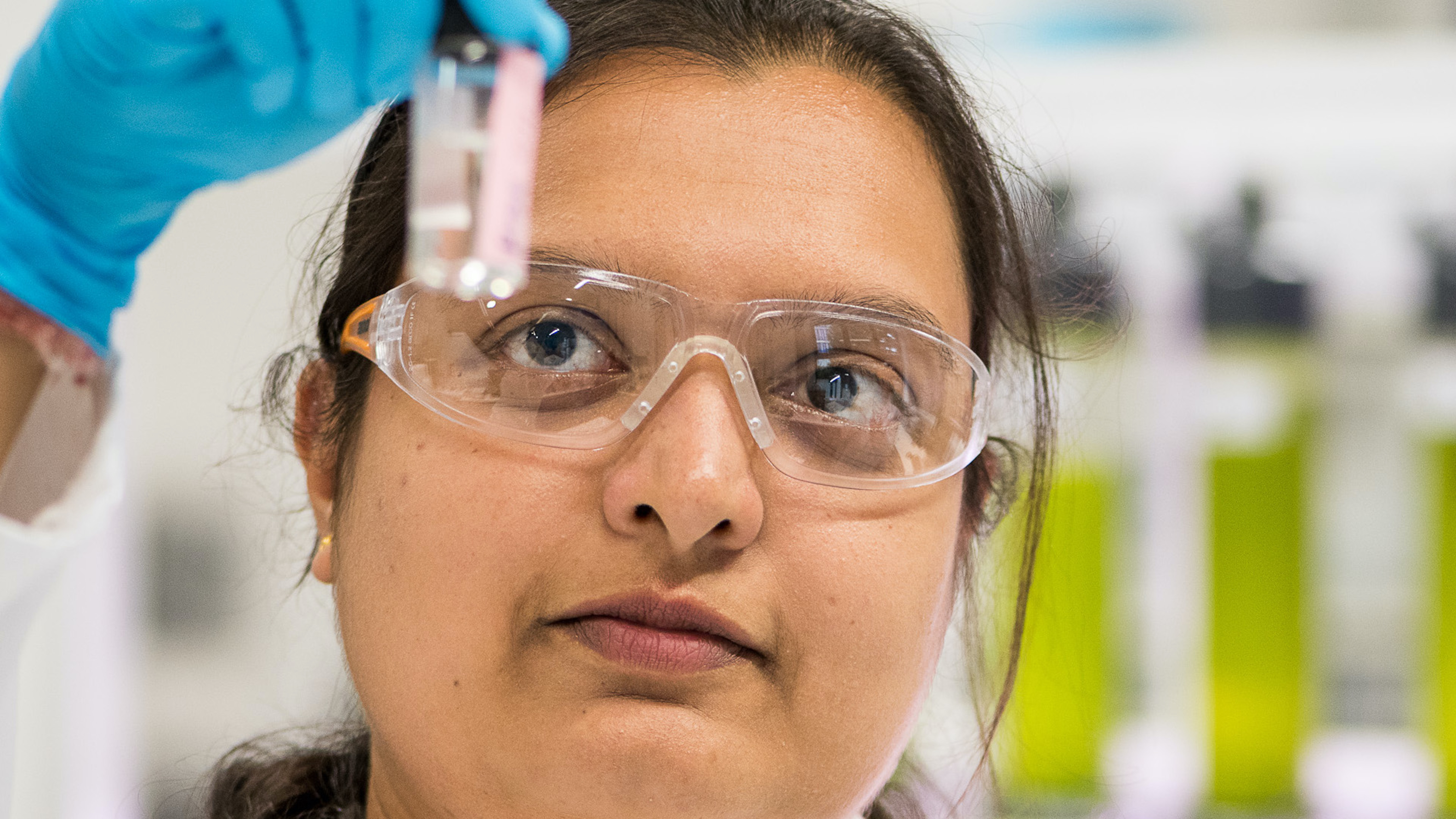Reducing petal pollution
Flowers play an important role in Indian culture, lying at the heart of festivals, weddings and religious ceremonies. However, temples only get one day’s use out of flowers before they dispose of them, leaving two million tonnes of floral waste each day.
Having been used in religious spaces, these flowers cannot be treated in the same way as other waste. Instead, they are disposed of in open lands or water bodies, polluting them in the process. Organic matter from the rotting flowers contributes to the growth of algae, which drains oxygen levels in water and can cause marine life to die. Finding better ways to manage this waste disposal and reduce pollution is something PhD graduate, Parimala Shivaprasad, is exploring at Bath.
“There are several challenges associated with solid waste management currently and as a chemical engineer, I have always wanted to tackle the problem to the best of my ability.” To do this, Parimala has set up the company, Retra, with the aim to upscale India’s extensive flower waste.
Meaning fragrance in Sanskrit, Retra will produce a sustainable essential oil range through the extraction of discarded rose and jasmine petals. Any leftover biomass will then be composted to produce organic manure to fertilise temple vegetable patches. Parimala’s business will not only tackle the prevalent floral waste problem in India but will also create more employment in local communities where extraction plants are based.
Turning a dream into a reality
Parimala grew up in Bangalore, India and completed her Chemical Engineering undergraduate and master’s degrees at Dayananda Sagar College of Engineering, Bengaluru and Malaviya National Institute of Technology Jaipur. It was during her studies that she started thinking about ways to recycle flower waste. In 2015, she joined the University of Bath to study a PhD in Chemical Engineering, but her ideas around flower waste management were never too far from her thoughts.
The BathSETsquared Innovation Centre is a hub for entrepreneurship and business development for industry and students alike. As part of the centre, Enterprise Bath supports undergraduates and postgraduates to realise their business ideas, including Parimala.
In 2018, Parimala successfully pitched her idea to alumni funders in a Dragons’ Den inspired competition. She won the University of Bath Business Plan Competition and received seed funding to test out a prototype. She later received the University’s Innovation Award which financed her to focus on her business in Bangalore for 12 months, with ongoing support from SETsquared.
“Student enterprise at the University gave me the confidence to go ahead with my business plan and helped me think through the idea beyond the chemical extraction, which is my trade. It was the launchpad for my ideas that I needed and has allowed me to turn my ambition into reality.”
With this support in place, Parimala was able to focus on using her skills as a chemical engineer to develop her product further. Using her academic training, she carried out proof-of-concept studies, setting up her own experiments, analysing results and optimising the process. This hands-on experience and thorough understanding of the extraction process allowed her to show funders and investors the technology behind the product and reinforce the business plan.
“Chemical engineering has applications in a wide range of sectors, for example, food, pharmaceutical and cosmetics. This has allowed me to constantly innovate and pivot existing ideas to suit the needs of a particular sector.”
What does the future hold?
Parimala’s ambition is to establish a flower waste biorefinery to upcycle flower waste into useful chemical intermediates for the fine chemical industry.
“With an increased emphasis on green processing methods and a move beyond the use of petrochemical feedstock, bio-refineries provide a sustainable pathway and a value-added approach to high value chemical production. Essential oils from flowers and the flower biomass can be further transformed into useful starting materials for chemical industries.”
Additional funding from the Royal Academy of Engineering (Frontiers of Development for Resilient Resource Use) has given Parimala the opportunity to investigate the feasibility of upcycling flower waste. In a year-long project, started in February 2021, she will carry out lab-scale studies at Bath and prepare a techno-economic analysis of upcycling flower waste with collaborators at the University of Edinburgh and Heriot-Watt. The outcomes of this project will be used to apply for further funding.
“Retra is a starting point of this project and the future plan is to integrate it with the spin-out company from my PhD research, SMDR Limited, with a vision to develop sustainable solutions for the chemical industry.”
Parimala is now a Research Associate at the University and has also had the opportunity to lecture in the Chemical Engineering department. Being back at Bath gives her the platform to pursue her professional ambition to become an academic entrepreneur and carry out research with potential for commercialisation.
